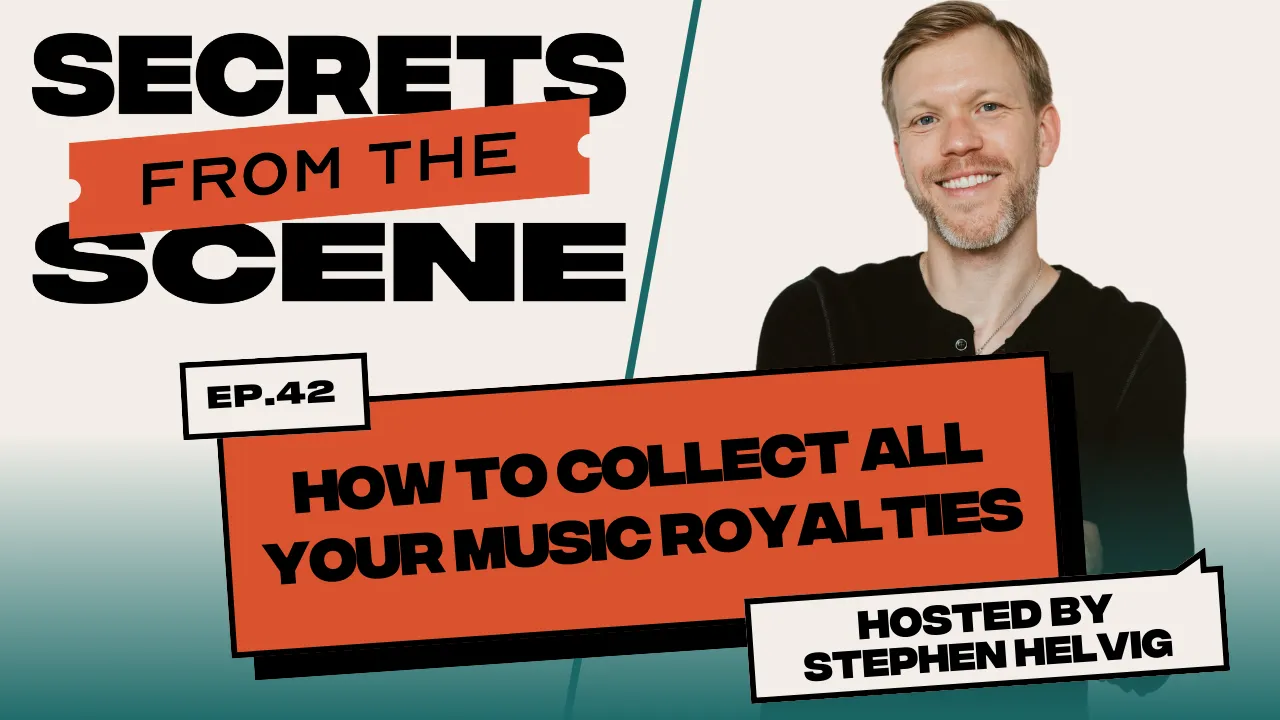Show Notes
This episode includes a free resource guide with tons of extra information to help you register your music appropriately. You can claim yours here.
As of April 2024, more than $2 billion in music royalties are unclaimed by artists, songwriters, and performers, according to one YouTube video. Other sources estimate that 20–50% of music payments never reach their rightful owners. Let's ensure you're not part of that unfortunate statistic!
Registering your music for royalties can be frustratingly difficult and complex. Many independent artists end up with incomplete registrations and partial collections or simply ignore the process and miss out on their money.
To help you navigate this, I've spent the last few months creating a free step-by-step guide with walkthrough videos and a detailed podcast episode. We'll break down this complex topic into manageable chunks to make claiming your royalties as easy as possible.
In this episode and its accompanying guide, you'll learn:
- How to create splits and why they're essential before registrations
- How to create and structure your accounts between personal accounts and shared "band" accounts
- Where royalties are generated and who they are owed to
- How to properly register your song with your distributor (CD Baby), Songtrust, and SoundExchange
If you plan to release music soon or want to brush up on your music business knowledge, this episode is for you. Enjoy!
watch now on YouTube:
Episode Links and Mentions
Connect with Me
Give Feedback
📬 Send me a message: stephen@secretsfromthescene.com
💬 Suggest a guest or topic: podcast@secretsfromthescene.com
🎙️ Brought to you by:
--------------------------------
Thank You
This podcast is made possible by the hard work, expertise, and commitment of my team:
Max Greene and Joey Biehn. I'm forever grateful.
--------------------------------
Theme Music: "Thankful" Courtesy of LUEDVIG

